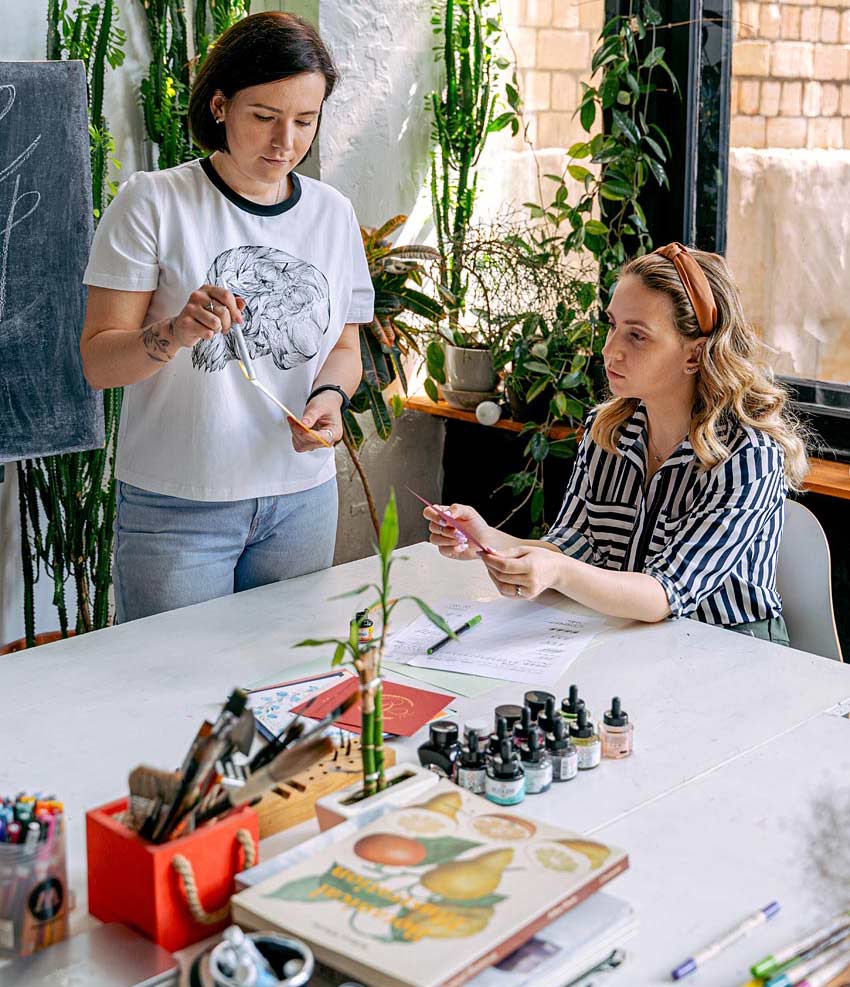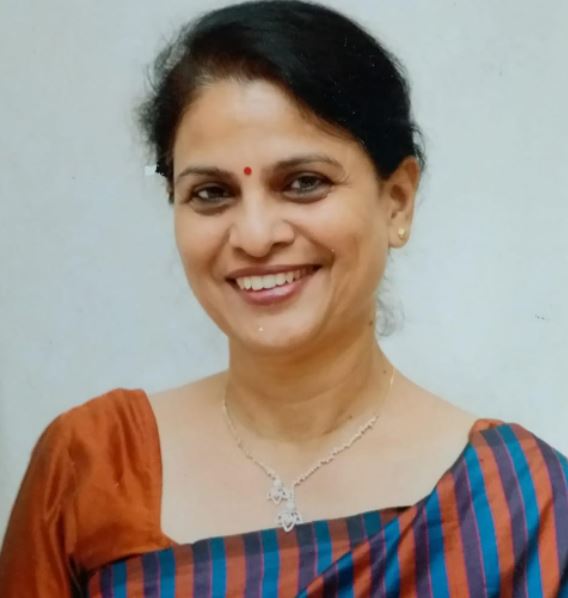To become a school teacher, you need the required qualifications. Mrs. Sangeeta Mehrish, a high school commerce teacher with 25+ years of experience, discusses the qualifications and requirements to become a school teacher.
1. Role of a School Teacher

Although in these times, technology has taken over a lot of things, interpersonal communication is not one of them. Face to face interaction, and the effect of manual teaching is something that is eternal. I am a teacher educating commerce subjects for classes 11th and 12th in mostly in private schools and now, online coaching. Needless to say that even in online coaching, video calling is the most effective way of teaching.
What a teacher gives to a student is mentoring not only in studies, but also in real time. A teacher can help you with your weaknesses by knowing you personally. There is eye contact, humanly connect and a sense of respect among a student and a teacher, which cannot be replaced by anything. A teacher should mould themselves into an inspirational figure for the students. The role of a teacher is to be:
- A mentor to students
- A support to students
- A learner
- Resourceful
More than just giving lectures, they also need to have the passion and grit, to engage with young adults and to make them enjoy your teachings and channel them into being successful in life.
2. How to Become a School Teacher in India
To become a school teacher, the following steps are necessary:
- Graduate high school: Take your subject of interest as the stream or major in high school and graduate senior secondary education. Your major will help you select your specialization in the teaching career, too.
- Do bachelor’s degree/college: Complete a bachelor’s degree in the field of your choice/strength. For this you may have to give a college entrance exam or interview, based on the college you apply to.
- Prepare for the required exams in college.
- Get a B.Ed degree (Bachelor’s in Education).
- Get master’s degree (optional) or M.Ed: To teacher higher education like college level, get a Master’s degree in the field you’d like to teach.
- Apply for a job in a school: Practice good work ethic to succeed as a teacher.
To become a school teacher is not so challenging if one is dedicated and finishes the required qualifications completely. Below are more details of the courses, degrees and exams to take to become a school teacher in India.
2.1 Subjects to Take in School
Anyone from any stream can take up the teaching profession. Teachers are needed for all the subjects taught in school. Teachers teaching secondary/higher secondary classes need a post-graduation degree in respective discipline and in addition, a Bachelor of Education degree (B.Ed). A (B.Ed) degree is necessary for anyone to become a school teacher in reputed institutions as it signifies your qualification to work in the education industry.
2.2 Courses Taken to be a School Teacher
To be a teacher you need a specialization in any respective field of an individual, science, commerce, arts, or sports. And a (B.Ed) degree is more than sufficient to start your process to become a teacher.
2.3 Entrance Exams
The State-Level Teaching Eligibility Test (STET) is conducted by the State. It is a compulsory exam to become a school teacher in any intuition. Another exam is The Central Teacher Eligibility Test (CTET), which is written for teaching higher secondary education. A small tip, solving previous year’s questions can help in preparing for the exams you want to take.
2.3 Academic qualifications

As mentioned above, a bachelor’s degree along with a (B.Ed) degree is necessary to qualify as a teacher. If you want to teach higher education, for example 10th-12th grade, you are required to have a master’s degree as well. For example, I have an M.Com degree, hence I am eligible to teach my subject, commerce, to higher secondary classes.
2.4 License Requirements
No such license is necessary for the teaching profession. Qualification and experience is sufficient. However, in future if you make plans of opening a school or a coaching centre, that will require license.
2.5 Work Experience Requirements
In any field, an organization would prefer experienced candidates. Similarly, experienced teachers are demanded by reputed schools. But experience only comes after the first few chances, so you will have to work hard in the initial years to gain some experience, to henceforth join big institutions. After all, teaching is also a learning curve. Experience is great, but it comes along the way, so it shouldn’t be too worried about because it is a gradual process that people not necessarily understand. Experience does not need to be the first criteria if the candidate is deserving.
2.6 Approximate Fee for Tuition and Training
In India, to become a school teacher, there are various degrees and post-graduate degrees to pursue. The tuition fee depends on state to state, but the average cost for B.Ed ranges from 5,000 INR to 2,00,000 INR.
2.7 Competition in the Teaching Field
Looking at the scenario in India, all jobs have tough competition. But an aspirant that is willing to pursue his/her passion will be ready to face any challenge. Although, there is no such thing as enough teachers!
2.8 How Many Years Does It Take to Become a School Teacher in India?
After your graduation degree of how many ever years, a B.Ed degree which is a duration of two years is required. So, approximately at the age of 23-24, you can start teaching. Although, it varies according to the grade level you want to teach, which may require another 1-2 years of masters.
2.9 Governing Bodies of Education in India
The National Council of Teacher Education (NCTE) is the statutory body in the Indian Government for teacher education. For schools, it is the Central Board of Secondary Education (CBSE) and other boards like State Board, ICSE, IGCSE, IB, etc.
3. Professional Opportunities and Career Growth
There are plenty of opportunities in the teaching field. Imparting knowledge can be done in so many forms, and the scope is massive!
3.1 Specialization and Sub Professions
Sub-profession to a teacher is a professor or a lecturer. To become a professor, you will have to clear the National Eligibility Test (NET) or have a PhD. Professors teach students pursuing bachelor’s, master’s, and doctoral degrees.
3.2 Companies and Institutes that Employ Teachers
Reputed academic institutions essentially employ qualified teachers. There is great scope in coaching centers, training institutes and tutoring. There are a lot of tuition teachers that cover many batches of students and are very well to do, and in today’s case even online tutoring is working well. Hence, there are plenty of sources and choices available in teaching jobs.
3.3 Growth Prospects in Teaching
Teaching has an ocean full of opportunities. There is no set or defined career map for teachers, you can go on to become a school principal, a college professor, or a college dean.
The way to progress in teaching career is through dedication and hard work, being meticulous and developing leadership abilities. It also depends on a teacher’s experience and reputation. If you want to expand your horizons, you can go for different careers in education and training, such as
- College professor
- Becoming department head
- Becoming a school principal
- Starting your own coaching center
Career development for teachers can involve doing further studies to gain expertise in a particular subject, thus enabling you to teach at higher education institutes. Also, you can gain further skills such as using technology, modern teaching aids and more.
3.4 Entrepreneurship Opportunities
There are many business prospects in the education career path. Return on investment will be there in most cases, as there are so many people that want guidance. You can start your own-
- Coaching institute
- Grooming institute for professional exams
- Public exam training center like JEE & NEET
- Home tuition
- Starting a school
3.5 Salary of a Teacher in India
The average salary of a schoolteacher in India depends upon the state, institution, and your qualification. The approximate figure for teaching career salary is ₹ 2-5 lakhs per annum.
4. Further Resources
Listed below are some of the best institutions to study teaching and education, to take you a step closer to proceed with preparations to become a teacher.

4.1 Top Universities in India
Some of the best institutions to study teaching and education in India are:
- Department of Education, Delhi
- Lady Irwin College, New Delhi
- St. Xavier’s College, Kolkata
- Lady Shri Ram College for Women, Delhi
4.2 Top Universities in the World
- University of Cyprus, Cyprus
- University of Glasgow, UK
- Arabian Gulf University, Bahrain
- University of Exeter, UK
- University of Auckland, New Zealand
4.3 Famous Personalities
Some famous personalities that rose to significant heights from this profession are
- Swami Vivekananda
- Dr. Sarvepalli Radhakrishnan
- Dr. Abdul Kalam
- Rabindranath Tagore
- Dr. Manmohan Singh
4.4 Useful Links or Resources

Sangeeta Mehrish is a high school teacher, teaching commerce, accounting and economics to the 11th and the 12th grades. She graduated with M.Com. and B.Ed. from Rajasthan University and has over 25 years of teaching experience as a PGT. She has taught Higher Secondary classes in various schools, most recently at Vaels International School, Chennai from 2013- 2019.
Prior to that, she taught at Lilavatibai Podar Senior Secondary School- ISC, Mumbai from 2007- 2013. She has also taught at other schools, including Maheshwari Public School, Jaipur (1988- 1990), Maharaja Sawai Man Singh Vidhyalaya, Jaipur (1990- 1993) and D.A.V Public School, Delhi (1994-1998).
Currently residing in Jaipur, she takes online and one to one coaching in Accountancy and other Commerce subjects. She has also worked with students with learning gaps, to help them gain confidence and level up.
Sangeeta completed her CIDTT (Cambridge International Diploma for Teachers and Trainers) in Dec 2014 from Vaels International School, Chennai. She also participated in seminars and workshops conducted by schools and Board Councils to gain insights into modern teaching techniques.